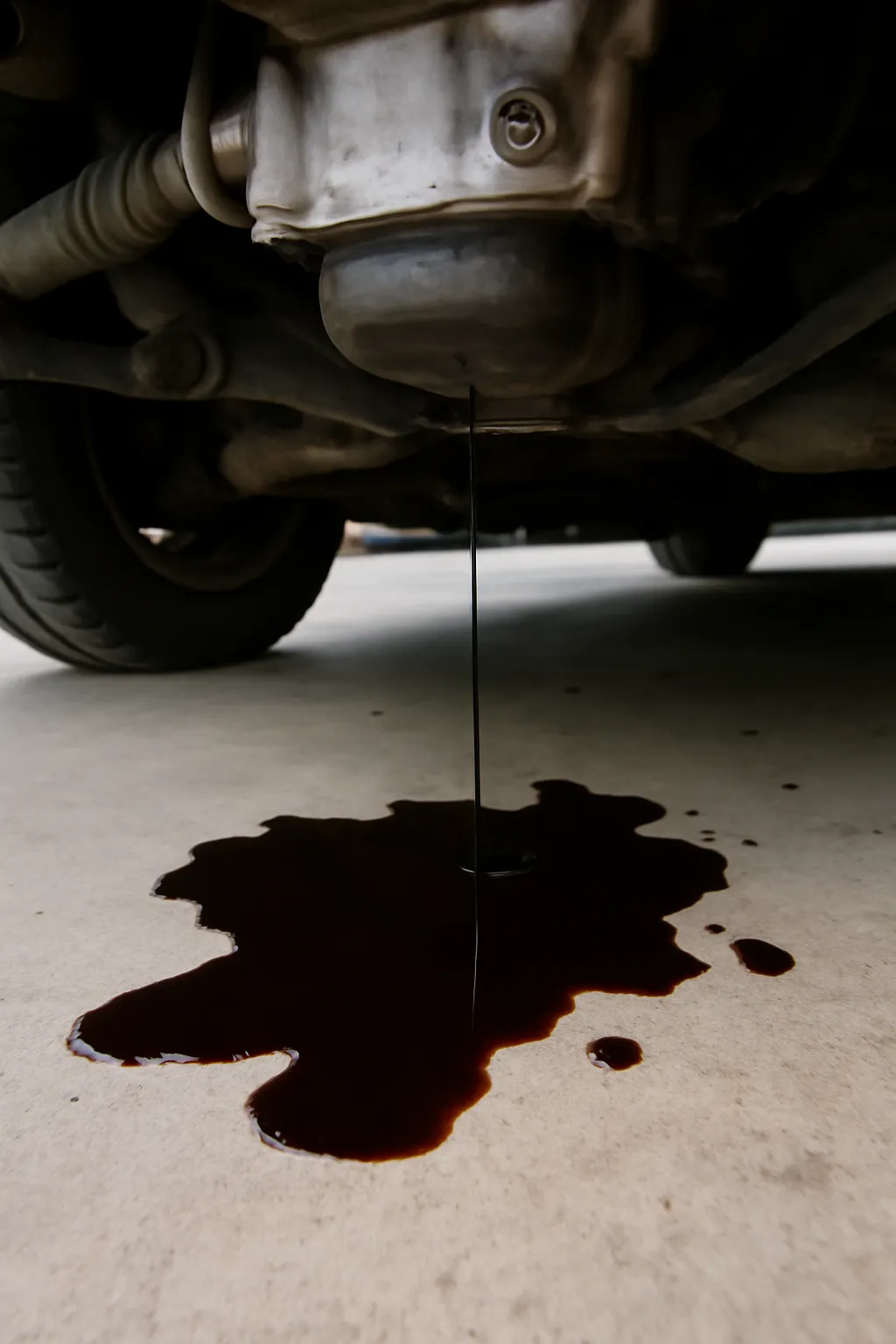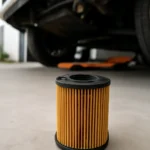Is your car leaking engine oil? How can you identify the symptoms and take the right steps to prevent further damage? Learn everything about engine oil leakage and how to address it effectively.
Engine oil is one of the most essential fluids in a car, ensuring the engine runs smoothly by lubricating its various parts. However, engine oil leakage can cause significant problems if not detected and addressed promptly. Whether you’re a car enthusiast or simply a car owner trying to maintain your vehicle’s health, understanding the causes, symptoms, and remedies for engine oil leakage is crucial for avoiding costly repairs.
In this article, we’ll explore the main causes of engine oil leakage, how to identify the symptoms, and what steps you can take to fix the issue before it gets worse.
Engine Oil Leakage: What Causes It?
Engine oil leakage happens when oil escapes from the engine through a crack, damaged gasket, or a loose part. There are several potential causes for this issue, including:
-
Worn-out or Damaged Seals and Gaskets
Seals and gaskets are designed to keep oil within the engine, but with time, they can degrade due to heat, pressure, and general wear and tear. Once these seals and gaskets are damaged, they can lead to leakage. -
Oil Filter Issues
If the oil filter isn’t properly installed, it can result in oil leaking out. This is often the case if a technician forgets to tighten the filter during an oil change or uses a faulty filter. -
Overfilled Oil
Adding too much oil to your engine can create excessive pressure, causing oil to leak out through the seals. It’s important to follow the recommended oil level for your vehicle. -
Cracked Engine Parts
A cracked engine block or oil pan can lead to severe oil leaks. While this is a rarer issue, it can be one of the most expensive to repair. -
Loose or Worn-out Drain Plug
The drain plug is used to release old engine oil during an oil change. If the drain plug is not securely tightened, it can leak oil over time.
Engine Oil Leakage Symptoms: How to Spot It
Identifying engine oil leakage early can prevent significant engine damage and save you from costly repairs. Some of the most common symptoms include:
1. Oil Puddles Under Your Car
The most obvious sign of oil leakage is a visible puddle or stain under your car. This is especially noticeable if your car has been parked for a while and you notice a dark brown or black stain on the ground.
2. Burning Smell
When engine oil leaks onto hot engine parts, it can produce a burning smell. If you smell this odor while driving, it’s a clear indication of a potential oil leak.
3. Low Oil Levels
A drop in oil levels between oil changes can indicate that oil is leaking. If you’re constantly having to top up your oil, it’s time to check for leaks.
4. Warning Lights
Many modern cars come with an oil pressure warning light. If this light comes on while you’re driving, it could mean the oil level is critically low due to a leak.
5. Unusual Engine Noises
Lack of sufficient oil can cause engine parts to rub against each other, leading to unusual knocking or ticking noises. This is a sign that the engine is not properly lubricated, potentially due to a leak.
If you notice any of these symptoms, it’s essential to inspect the engine or take your car to a mechanic as soon as possible. Delaying repairs could lead to further damage, including engine overheating or even complete engine failure.
What to Do If You Notice Oil Leakage?
If you discover an oil leak, here are the steps to take:
-
Check the Oil Level
First, check the oil level with the dipstick to determine how much oil has been lost. This will give you an idea of how serious the leak is and whether the engine is at risk. -
Locate the Leak
The next step is to identify where the oil is coming from. You can usually spot the source of the leak by looking around the engine area, paying close attention to the oil filter, drain plug, and gaskets. -
Consult a Mechanic
If you’re unable to locate or fix the leak on your own, it’s best to take the car to a professional mechanic. They can diagnose the problem and recommend the necessary repairs. -
Repair or Replace Damaged Parts
Depending on the cause of the oil leak, the mechanic may need to replace seals, gaskets, or other engine parts. In more severe cases, such as a cracked engine block, the repair could be more extensive and costly.
Engine Oil: Prevention and Maintenance Tips
Preventing oil leaks from happening in the first place is the best strategy. Here are some maintenance tips to ensure your engine stays in good condition:
-
Regular Oil Changes
Regularly changing your engine oil ensures that it remains clean and at the correct level. This helps maintain engine efficiency and prevents oil leaks caused by old or degraded oil. -
Inspect Seals and Gaskets
Regularly inspect the condition of your engine’s seals and gaskets, particularly during oil changes. Replacing worn seals early can prevent costly leaks. -
Use the Correct Oil
Always use the recommended engine oil for your car. Using the wrong viscosity or oil type can put extra strain on the engine and increase the risk of leaks. -
Monitor Oil Levels
Regularly check your oil levels, especially if you notice any unusual behavior in your car’s performance. Topping up oil promptly can prevent further issues.
Conclusion
Engine oil leakage may seem like a minor issue, but if not handled properly, it can lead to major engine damage. By being aware of the causes, symptoms, and preventive measures, you can ensure your car runs smoothly for years to come. If you notice any signs of oil leakage, don’t delay – act quickly to prevent expensive repairs and keep your engine in top condition.






